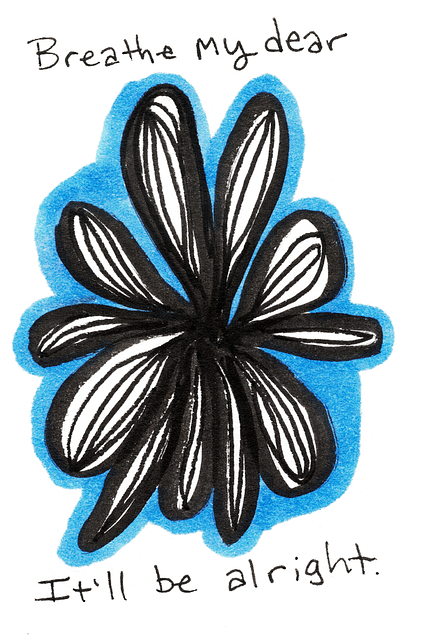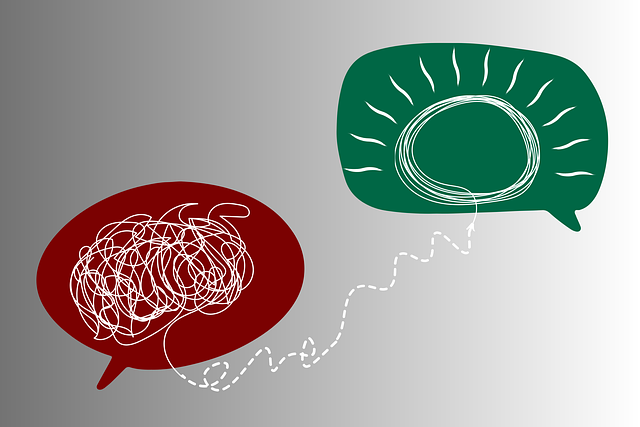In Lone Tree, effective crisis intervention for French-speaking individuals requires a tailored, culturally sensitive approach. By combining empathy, respect for cultural differences, and specialized training (Cultural Competency Training), therapists can overcome language barriers and address immediate crises along with underlying factors. This approach ensures that Lone Tree French Speaking Therapy provides personalized solutions, managing moods, and supporting the specific needs of this community during distress. Post-crisis support, enhanced by stress management techniques and safe spaces, aids in rebuilding security and self-confidence, ultimately improving mental wellness outcomes.
In the heart of Lone Tree, French-speaking communities often face unique challenges that require tailored crisis intervention strategies. This article offers comprehensive guidance for professionals navigating these delicate situations. We explore essential aspects such as understanding cultural nuances in crisis intervention, implementing effective communication strategies in therapy settings specifically designed for French speakers, and providing post-crisis support to foster resilience within these communities. By delving into these key areas, we aim to empower therapists and build stronger, more resilient Lone Tree French-speaking communities.
- Understanding Crisis Intervention for Lone Tree French Speaking Communities
- Effective Communication Strategies in Therapy Settings
- Post-Crisis Support and Fostering Resilience
Understanding Crisis Intervention for Lone Tree French Speaking Communities

In Lone Tree French-speaking communities, crisis intervention requires a nuanced approach that respects cultural backgrounds and linguistic needs. Many individuals within these communities may face unique challenges, such as feelings of isolation or barriers to accessing mental health services in their native language. Therefore, Lone Tree French speaking therapy becomes an essential component for effective crisis intervention strategies. Therapists play a crucial role in fostering understanding and trust by employing empathy-building strategies that acknowledge cultural differences and linguistic preferences.
By integrating these techniques, mental health professionals can conduct thorough risk assessments tailored to the individual’s context. This involves assessing not only the immediate crisis but also underlying factors contributing to distress, such as social isolation or cultural shocks. Through careful evaluation, therapists can develop comprehensive plans for mood management, ensuring that interventions are culturally sensitive and effective in addressing the specific needs of Lone Tree French-speaking individuals during times of crisis.
Effective Communication Strategies in Therapy Settings

Effective communication is a cornerstone of crisis intervention strategies, especially when catering to diverse populations like Lone Tree French-speaking communities. The ability to connect and understand clients from various cultural backgrounds significantly enhances therapy sessions. For instance, healthcare providers offering services in these areas should consider enrolling in Cultural Competency Training to improve their interactions with French-speaking individuals. This training equips professionals with the skills to navigate language barriers, respect cultural norms, and foster a safe space for open dialogue.
Emotional intelligence plays a pivotal role in successful therapy. Therapists must demonstrate empathy, actively listen, and respond sensitively to clients’ emotions. By integrating emotional intelligence, healthcare providers can build trust and encourage individuals to share their experiences openly. Furthermore, teaching stress management techniques during therapy sessions benefits both the client and therapist, especially when addressing crisis situations, ensuring a more effective and supportive environment for all involved.
Post-Crisis Support and Fostering Resilience

After an individual has successfully navigated a crisis, providing ongoing support and fostering resilience are essential components of recovery. This period is critical in helping them rebuild their sense of security and self-efficacy. Lone Tree French Speaking Therapy offers tailored post-crisis support to address unique needs and cultural considerations. A supportive environment where individuals feel heard and understood can significantly impact their ability to cope with future challenges.
Encouraging clients to engage in mental wellness journaling exercises or positive thinking practices can be integrated into this process. Healthcare Provider Cultural Competency Training equips professionals to offer effective guidance, ensuring sensitive and respectful interactions. By fostering resilience through these strategies, individuals gain valuable tools to navigate future stressors and maintain their mental wellness.
In addressing crisis intervention within Lone Tree’s French-speaking communities, a multifaceted approach is key. By understanding the unique challenges faced by these communities, implementing effective communication strategies, and providing robust post-crisis support, we can foster resilience and promote healing. Lone Tree French speaking therapy benefits greatly from tailored interventions that respect cultural nuances and prioritize emotional well-being. This holistic guidance ensures individuals not only survive but thrive in the face of adversity.








